INFOGRAPHICS of the INVISIBLE | Xaviera Lopez
- Lena Damico
- Jul 27, 2021
- 9 min read
Updated: Nov 19, 2025
Xaviera López, best known for her short and visually captivating animations, first gained recognition for her work on the famous social media video platform Vine. While using both technical and physical processes to obtain the intricate movements of her animation, López loves to use her connection to nature and natural forces to bring imagined inanimate objects, beautiful feminine forms, and curious creatures to life. In doing so, López takes inspiration from her years of growing up in Chile as a child, and the beautiful landscapes and political history that surrounded her (these can be seen in her animated blinking strawberry piece, as well as in her journals where she has drawings of flowers, animals and other natural entities). López emphasizes the importance of movement, not only in her pieces but in the process of creating them. Movement inspires López in many senses of the word, starting as a “conversation” as López admits, and in the making of her ideas, they move and change themselves.


While many of us are entrenched in the 24/7 use of social media, López, it seems, uses her creativity to integrate nature and natural forms back into it, a refreshing turn from the mechanics of everyday media usage. In talking to López, I felt what was so groundbreaking and inspirational was her understanding of humans and their connection to nature. Like many of us nowadays, she believes that much of our problems as humans are because we’re not connected enough to nature and each other. López’s own deep connection to nature (she has studied yoga for years, as well as taking the time to understand the moon cycles and the meaning behind them) has influenced the work she creates, as she states she often feels that nature is the one telling her what to create, whether that be how different shapes in nature fluctuate or the movement of an insect.
What López reiterates the most, and what I think anyone who is reading this should take with them after learning more about her, is that art should be nothing more than creating pieces that are interesting and meaningful to yourself. That, López believes, is where true passion strikes.
Lena: Let's start off by talking a bit about where you’re from and your backstory. Where did you grow up? How much did where you grow up influence where you are now and the career paths you have chosen?
Xaviera: I grew up in Santiago de Chile. Growing up here was a mix of hindrances and grace, and all of it helped me get where I am now. On one hand, this is a very interesting and inspiring place, and on the other, there were many obstacles, both personally and professionally.
Obstacles ask you how much you want what you want, so they made me determined and disciplined. However, I have appreciated finding a sense of ease and pleasure over time as well.
This is a very special place. A thin long territory with mountain ranges at both sides. There are many landscapes: the pacific ocean, snowy mountains, the desert, the rainforest, and Antarctica. It's very isolated geographically and that I think shapes us subjectively. There's a powerful undercurrent of energy here and I think that's what I like the most.
There were beautiful and rich cultures here, but first, there was a brutal imposition of the conquistadors (catholicism and violence) and then capitalism, globalization, and huge inequality with the dictatorship (and more violence). In Santiago's architecture, you can see this forced collage.
I would have wanted to be closer to different art fields and have more opportunities to explore everything I am interested in. But I know I was privileged enough in this context to even think of being an artist and I’m grateful for that.

Lena: On your website, you made a comment about how it is difficult to be an artist in Chile. How so? Is this stigma something that motivated you to move beyond those restraints? … Do you find yourself using your culture as an influence for your art? How so?
Xaviera: This was a long and painful dictatorship here. Many artistic expressions were censored or erased, and economic growth became the main purpose. There is also this general pragmatic mentality about doing "useful" things, having credentials, competing, and accumulating as much as you can. I know this is a global thing but in Chile, it seems more extreme as it was an experiment in neoliberalism.
I grew up with the return of democracy, so all those dictatorship ghosts were still present along with this energy. I got to experience the old world with not that much stimulus and that is something I'm grateful for. I'm not saying everything was better before because it wasn't necessarily, but I think it's important to be a kid and get bored, spend time outside and look at what the plants are doing.

I am very sensitive and interested in the subtle and the invisible, so in a way, I always felt out of place, like I didn't belong. I learned to fit in the best I could, but I was always daydreaming about something else. I get sick when I force myself to be in situations where I don't want to be for too long. So I had to learn to listen to and validate the voice inside me. I'm still learning. My work is a lot about that process too.
Concerning my local culture, I'm trying to connect with something deeper. We have the same calendar and celebrations as the northern hemisphere, so for instance we celebrate Christmas in the summer at 30ºC or more, with fake snow and very hot Santas. Easter in autumn, Halloween in spring...That makes a disconnection very obvious. I feel like many human problems come from disconnection from the world around us. So I'm trying to be more present and aware of all that, and know more about what nature is doing. I go for long daily walks and try to notice all the details and how things change day by day.
Lena: Was art something you always knew you wanted to pursue or was it an idea/inspiration that came to you later on in life?
Xaviera: I knew I wanted to be an artist ever since I can remember. Given my context, maybe it was a way to spend time in my head and a tool to communicate what I was experiencing.
I didn't like or was particularly good at anything else so it was easy in that way. I would've wanted to further explore more areas of art. I used to sing, act, sew, etc. But drawing was such an independent and simple activity that I organically chose it.
My creative practice has given me so much back. It saved me in difficult times and has helped me document the joy and beauty of better times.
Lena: A lot of pieces also heavily focus on the female or feminine aspects, do the color and the story being told relate? Is there a purpose for art with mostly women as the focal point?
Xaviera: There are many reasons. These are self-portraits. I use myself as the character because I am talking about what I'm going through and because it's simpler to direct myself for the video references. I simplified all the formal aspects (color, details, texture, lines) to be able to focus on animation. I usually go for what I like instinctively and then I find out why I did it. A month ago I was reading a book and discovered that black, white and red were the classic colors of the triple goddess, I was excited to find a new connection to the feminine.
About the feminine: Looking around, I always thought men's lives were funnier and freer.
Being a woman is something I personally have had to learn to inhabit gracefully. I am still learning.

There is a very long history in Art of women being portrayed by men. I think it's different when a woman does it because it shows more dimensions of the person and of womanhood. Even if it's objectification, it's more interesting if you are the one doing it. Personal power and subjective experience are what make the difference. In my case, I am figuring out who I am in general, and I happen to have this body and gender identity that I'm trying to understand and reflect on. Incarnation feels like a whole process and I make myself charms and document things. Like a map, or an infographic of the invisible.

Lena: I understand that your career really took off after sharing your art on the social media platform Vine. What was this like for you? How was the transition for you moving your art from other platforms to Vine? Did it change the ways in which you approached your art?
Xaviera: I wasn't that much into social media when I found Vine. I was studying yoga, struggling with jobs I didn't really like, and money. I've never in my life stopped making creative work but I felt like there was no space for it in real life. What I loved the most was that we were forced to create in-app, so we all had the same tools, and time was limited to six seconds.
People were doing amazingly creative work within these limitations. They were also very supportive and friendly, sharing technical tips and tricks, commenting on each other's work, refining, etc. The sense of community and democracy was inspiring for me to try and do something. I started making little animations every day in my free time, on the weekends, at night. It was fun and exciting.
Little by little I built a small body of work I was more satisfied with and a year after I first started, things began to happen. It was miraculous for me to suddenly have all these opportunities and meet great friends. It radically changed my perspective about purpose, work, meaning, creativity, confidence, etc. After a while, I started also posting my videos to other platforms so the transition was smooth.
What I treasure the most and keep from this experience is to trust my own ideas and turn them into reality. And that the process is everything.
Lena: On the topic of the vine, could talk about the parallels of young artists on Vine vs. TikTok and how social media has played a role in boosting creativity/ young (female) artists.
Xaviera: I don't know a lot about social media methods or concepts as I come from an art background so this is where I will speak from. It's important to trust your instinct and your ideas, there's no such thing as a bad idea if it comes from a place of authenticity. Not everything will be great but the work will improve over time with practice and consistency.
Making things constantly and being creative is the most important reward, it doesn't matter if people like what you make or not. It's enjoyable and meaningful to just turn ideas into reality and send them into the world.
Start with small achievable steps, don't feel pressured to constantly post or do things a certain way, be kind to yourself. Go outside, spend time alone. Get to know who you are. Have experiences.
Lena: What steps young girls can take if they are hoping to spread/ share their art on social media and new video platforms such as Tik Tok. If Tik Tok is something she watches/ participates in, has she seen a difference in the spread of art? How has an increase in media and video apps such as Vine/ Tik Tok done this?
Xaviera: I've been exploring TikTok in the past year, I still haven't figured out how or if I want to participate. I don't know if short loops are the way to go because there are many more options and I'd like to challenge the possibilities. It seems like a great storytelling tool!
In general, I don't like trends, cancel culture, hyperstimulation, standardization, or forced relatability, it's a little tiring for me. I see this not only on Tik Tok but on social media in general. Too much information and speed make me numb and sad.
Yet I've seen people doing amazing work on TikTok, there's an explosion of creativity for sure.
I think that all these platforms are great tools to make and spread your work. I don't know what I would be doing without the internet. At the same time I think that regardless of the tools, the focus should always be on the quality and soul of the work. I think all of these free channels we've been given are amazing, but come with a responsibility, so I think it’s important to be mindful and respectful with the viewer.
Lena grew up in New York City and came to the West Coast to study Graphic Design. She enjoys making art (especially collaging), being outdoors, finding new music, and hopes to improve on her surfing skills in the next year.
Additional Information
RAW FEMME Interview
The Surrealist Dreamer (2016) Interview
Soul Painting (2019) by Lisa Wayne Story
We are all deeply grateful to Xaviera for generously agreeing to do this interview zooming all the way from Chile-especially for her beautiful deep wisdom. We have been following her work for years, this post is very dear to all of us here at withitgirl.
© 2020-2021 withitgirl. All rights reserved. We appreciate your feedback!


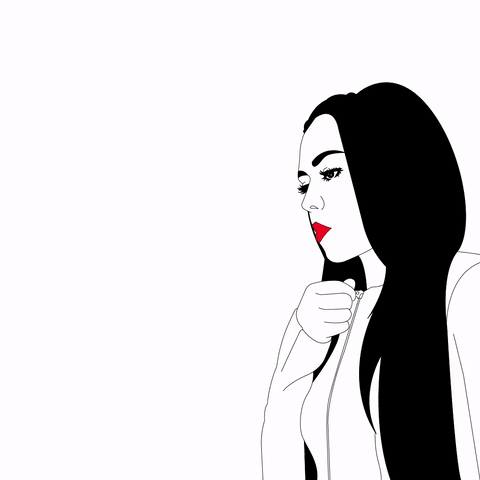
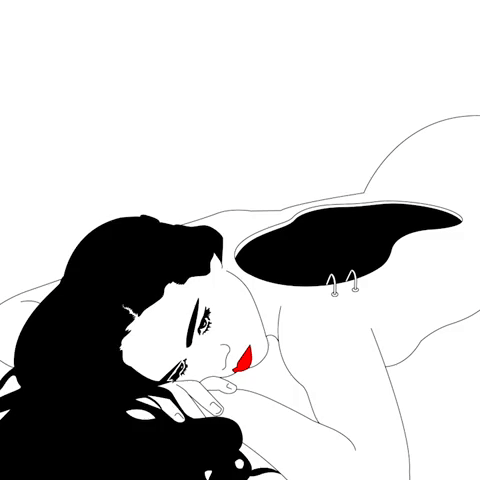

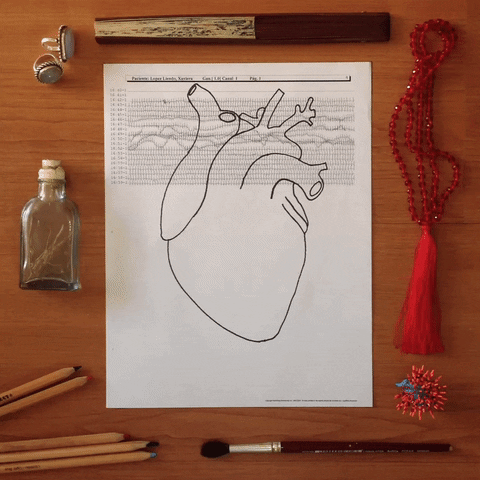




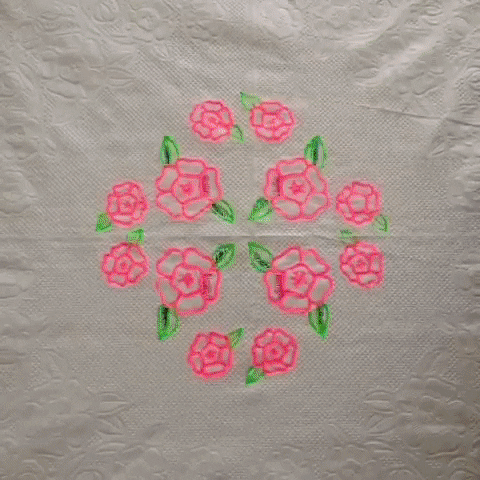
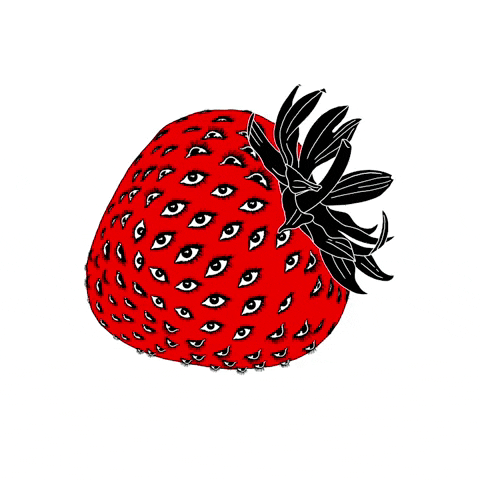











Comments